In today’s rapidly evolving digital landscape, scholarship programs have recently become a new target for scammers and fraudulent applicants. The rise of artificial intelligence and advanced internet behavior has made it easier than ever for dishonest individuals to create convincing but false applications. Recent studies have found between 50% and 95% of students admit to committing academic dishonesty during their academic careers. Academic dishonesty is a problem for both higher education institutions and scholarship providers – it can include plagiarism, fabrication of data, and falsification of information, extending to scholarship applications as well. The false credential industry is estimated to be worth $21 billion USD per year globally and has a significant growth in academic credential fraud. In the past year alone, Kaleidoscope has seen an increase in the altercation and fabrication of records amongst applicants. With this guide, we’ve outlined our best practices that have helped staff identify and prevent fraudulent applicants in the programs of our customers.
Red Flags in Scholarship Applications

Inconsistent Information
The most common giveaway we see for fraudulent applicants is inconsistent information. Look for discrepancies in names, dates, or places across various documents. Sloppy formatting and information that doesn’t add up should be a red flag that something isn’t right. If you decide to continue with the applicant, verify records with the issuing institution – which should be able to confirm legitimacy upon request from the registrar’s office.
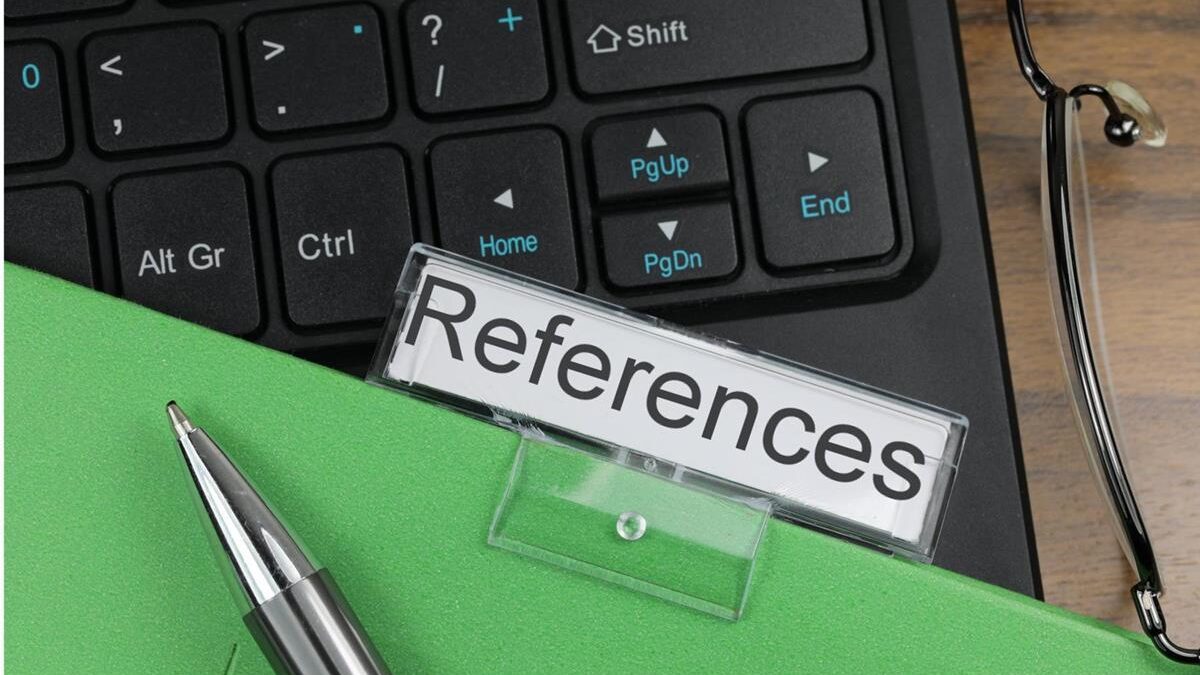
Unverifiable References
Always reach out to listed references or past educators for finalists. Make sure to require their contact information in the application beyond an email address or letter of recommendation to help confirm their identity. If they are difficult to contact, unresponsive, or unaware of the applicant upon reaching out, this could indicate a fraudulent application. Additionally, you can cross-check the reference’s identity and status through company websites, employee lists, or LinkedIn.
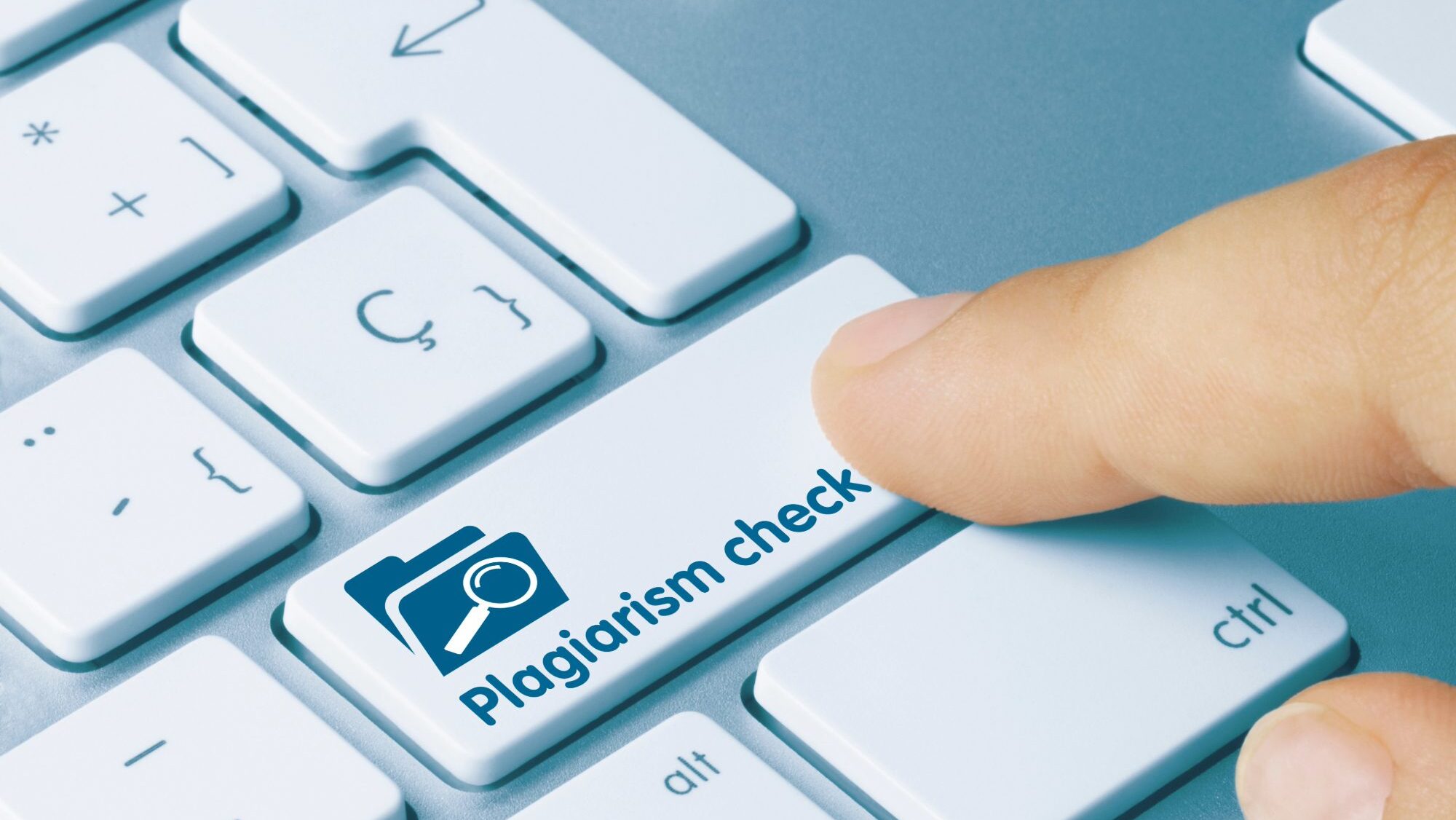
Plagiarized Essays
While plagiarized essays might not necessarily be an indication of fraud, providers should use this as an opportunity to weed out non-serious applicants. You can utilize plagiarism detection software to ensure essays are original amongst your applicant pool. Some common examples of software that are used by higher education institutions are Turnitin, Plagscan, and Ouriginal. These examine student essays for text matching against journal repositories and internet sources.
Kaleidoscope utilizes its own AI & Plagiarism Detection tool to identify plagiarism and AI use in application essay responses, which is available to customers on certain plans. Detecting plagiarism should be a very important concern for scholarship providers because plagiarized content not only violates integrity standards but also helps identify and eliminate non-serious applicants that would cost your review board time.

False Claims of Extracurricular Activities
Consider requesting verification from organizations where the applicant claims to have participated, especially if several prestigious affiliations are claimed. You may have to reach out to a program advisor or the national organization to ensure enrollment (for example NHS or FFA). If the organization cannot confirm the applicant’s involvement, it could indicate fraud or dishonest behavior from your applicant. If a finalist’s claims feel too perfect (e.g. valedictorian, class president, and sports captain), you may want to make an effort to validate their accomplishments before proceeding.
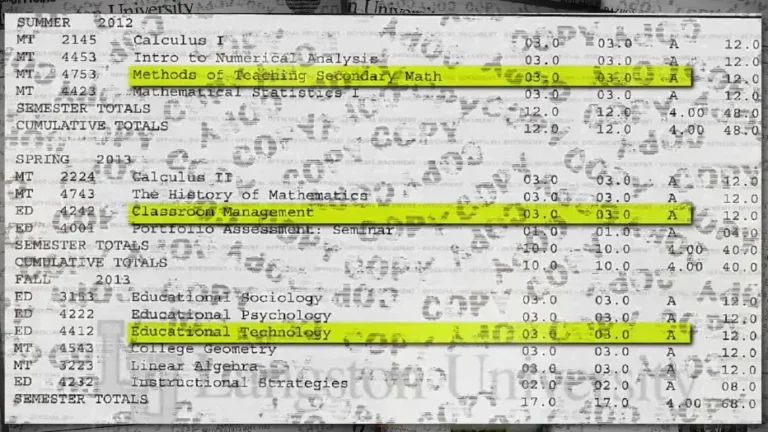
Fake Academic Records
Be wary of applicants who submit transcripts or certificates from institutions that don’t exist or seem suspicious. If grades or test scores look too good to be true – take a second look! Always verify the legitimacy of the issuing institution and the records.
For example, the transcript above looks consistent and academically perfect, but was confirmed fraudulent by the alleged issuing university (Source). For some universities, you may be able to order authentic transcripts and degree records online from sources such as National Student Clearinghouse.
Practices to Deter Fraudulent Applications

Collect Official Documentation
You should minimize the documents an applicant needs to self-upload if possible. Then you can request official copies of transcripts, test scores, and other documents directly from the issuing institution rather than accepting copies from applicants. This eliminates the opportunity to edit or alter documents and ensures they are official documents from the issuing institution.

Personal Interview Process
Conduct interviews with applicants either in person or via secure video calls. Some common applications organizations use are Zoom, Google Meet, and Microsoft Teams. This will help verify their identity and allow you to ask the applicant questions directly related to their application. Video is also a more personable interview medium and will help you understand your applicant deeper than just written words.
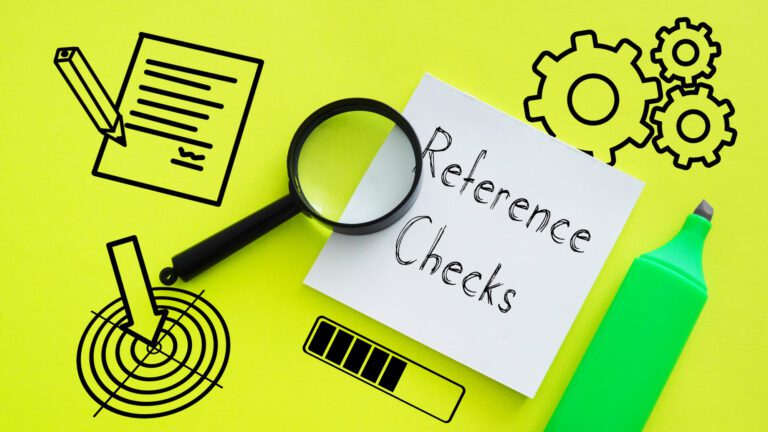
Utilize Reference Checks
Follow up with listed references on their application. Asking specific questions can help verify the applicant’s story and catch inconsistencies. Reference checks can often be an overlooked part of the process, so you should make an extra effort to follow up with all references for your selected finalists to ensure legitimacy.

Implement Third-Party Verification Services
Consider using professional services that specialize in verifying academic records, identity, and other application details to prevent fraud. For identity verification, Plaid, and Clear are successful and proven platforms. For education status, Checkr has a tool to verify degree history and National Student Clearinghouse can verify high school and college degrees or enrollment.

Conduct Background Checks
Perform thorough background checks on applicants, especially if the scholarship is substantial. This may include checking social media profiles for concerning behavior or conducting a formal background check. Kaleidoscope offers clients thorough National Criminal and Social Media screening packages through our partnership with Yardstik.
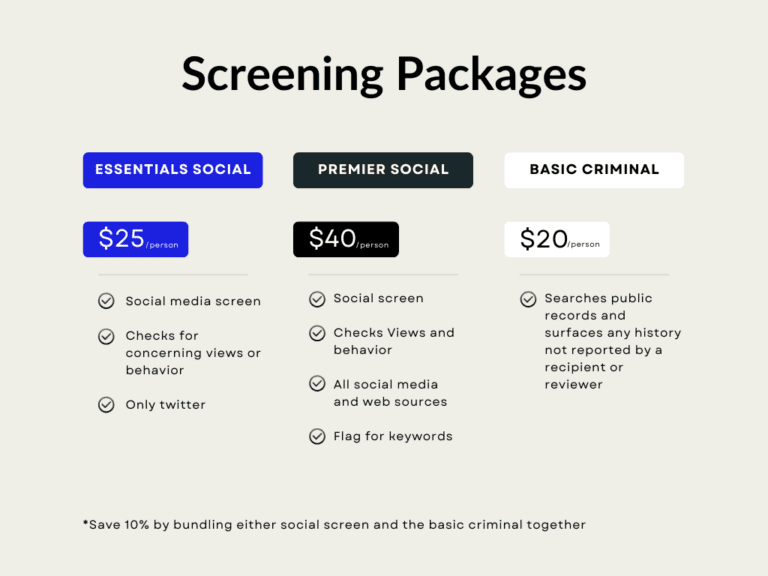
To help decrease the cost of background checks, consider purchasing screenings for finalists only. If the award amount is high, the fees can be passed on to the awardees.
Existing customers can click here to learn more about adding screening to your program.
Looking to get started?
Request a demo with a Kaleidoscope team member to see how you can better protect the integrity of your program.











